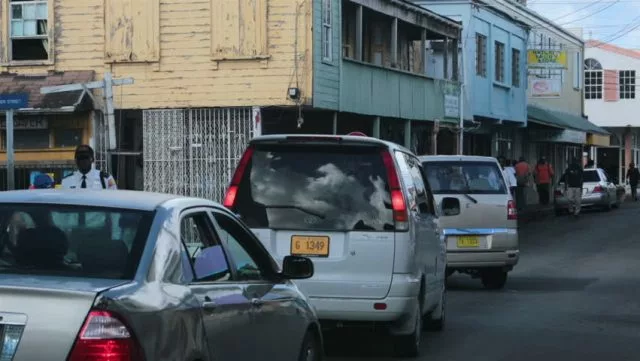
– Announcement –
By Robert A. Emmanuel
[email protected]
Almost 1,200 government-issued vehicles are currently plying Antigua and Barbuda’s roads, Works Minister Maria Browne said at a recent cabinet meeting.
An initial investigation by his department revealed that there were 1,170 such vehicles. They are regularly supplied with petrol and maintenance paid for by the Antigua and Barbuda Transport Board, and cabinet plans to reduce this number amid efforts to rein in government spending, cabinet notes revealed.
During yesterday’s post-cabinet briefing, Prime Minister’s Office chief of staff Lionel Hurst was unable to give a precise breakdown of how the vehicles are distributed between different government departments, or how much it costs him annually to the government in maintenance and fuel costs, but attributed many of these vehicles on the road to “favors”.
“This is a small country where people know each other, so a lot of favors are granted using government resources to pay for it: insurance, gas, registration fees … it could be real income received if it was of individuals driving their own vehicles and not government vehicles, and we’re looking to reduce that,” Hurst said.
According to a source familiar with vehicle maintenance and operations, maintenance costs and “repairs and fuel differ by engine size, vehicle type and use.”
The source noted that privately owned vehicle maintenance, which includes oil changes, filters, air conditioning maintenance checks, cleaning and lubricants, could run up to $1,000 a month. In comparison, with fuel costs ranging from $200 to $300 per month for private vehicles, the tab for government-issued vehicles could be more than three times that amount due to the extensive use of these vehicles.
The government has repeatedly tried to crack down on misuse of its vehicles and in 2018 announced it would conduct an audit of government vehicles.
Government-issued vehicles often carry ‘GV’ or ‘G’ plates, but according to Ambassador Hurst, some could carry ‘A’ or ‘C’ plates, which are normally associated with privately owned vehicles.
“We think the people of Antigua and Barbuda would much prefer it [that] we spend taxpayers’ money on doing useful things rather than on government employees to whom they are not entitled”, he pointed out.
Hurst said the Antigua Public Services Authority has the largest fleet of government-issued vehicles, many of which are considered useful for their regular operations, but further assessment was needed on this issue.
– Announcement –


